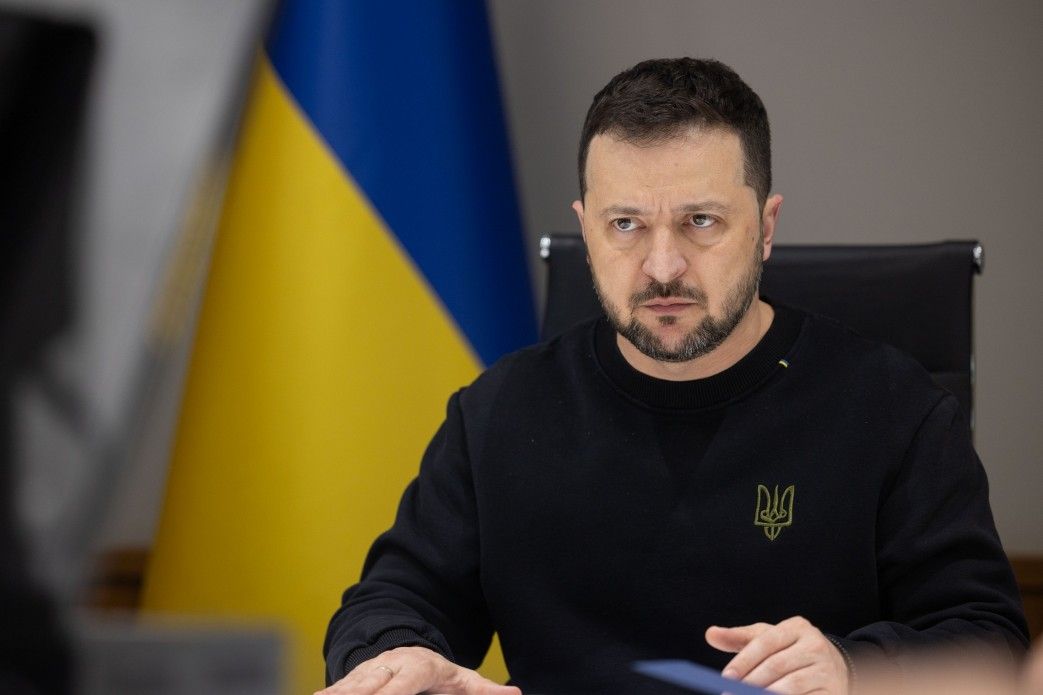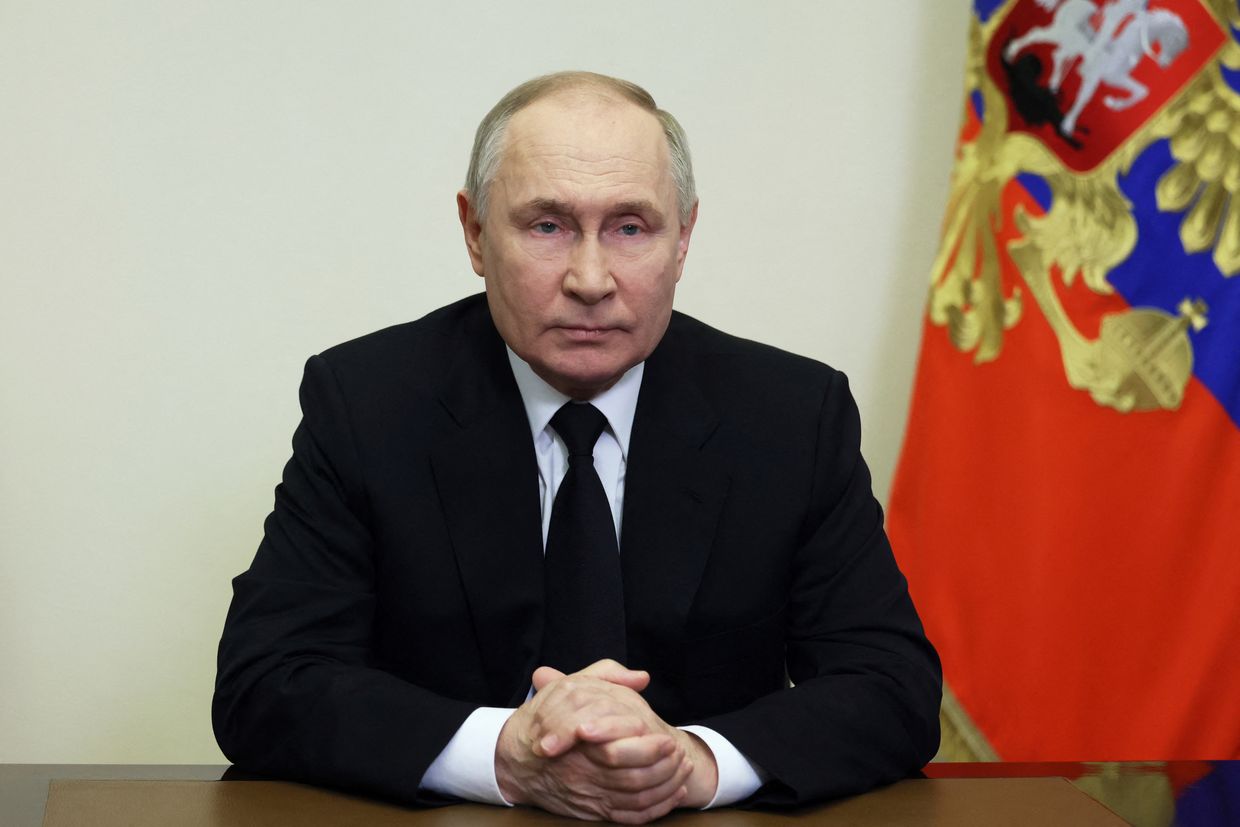Russia's response to terrorist attack, alleged torture of suspects, follows pattern of abuse in Ukraine

The terrorist attack at Crocus City Hall outside of Moscow on March 22 that killed at least 139 people has sent shockwaves through the country.
For a country with such an overwhelming focus on security and steadily increasing militarization of society, the inability to prevent such a deadly incident was a stunning failure of Moscow's law enforcement capabilities.
Beyond the questions that arose about the delayed response to the attack, there is also the fact that the U.S. publicly warned Russia about an impending terrorist attack, which Russian President Vladimir Putin promptly dismissed as "Western provocation."
Following almost 24 hours of silence after the attack, Putin has sought to portray Ukraine as somehow being involved, despite the Islamic State taking responsibility.
Kyiv has dismissed the allegations of its involvement in the mass shooting. The White House said there was no indication that Ukraine was behind the Moscow attack.
At the same time, the Kremlin's implication that Ukraine was involved was the latest episode in a long campaign to demonize Ukraine and Ukrainians. The thoroughly debunked portrayal of Ukraine as a Nazi state has been central to Russia's justification of its full-scale war and has been widely covered.
Yet Russia has also invoked the framing of "terrorism" when trying to discredit Ukraine. Russia's Investigative Committee charged four top representatives of Ukraine's Armed Forces in absentia with committing "terrorist acts on Russian territory" in October 2023.
While it is unlikely that they will be actually brought to trial in Russia, other Ukrainians from Russian-occupied parts of Ukraine have also been tried for terrorism. Russian proxy forces in Transnistria, the Russian-occupied region of Moldova, accused Chisinau in January 2024 of training soldiers, including Ukrainians, to commit "terrorist actions" on Transnistrian territory. Moldova categorically denied the accusations.
Russian law enforcement also has arrested 11 people, including four Tajik nationals who they said were the perpetrators.
Photos and videos of their alleged torture have been widely circulated on Russian social media. One of the videos depicted members of Russian security services cutting off one of the suspect's ears and forcing him to eat it, while another showed a man being tortured with electric shocks.
While the validity of these videos cannot be independently verified, Margarita Simonyan, a Russian propagandist and head of the state-owned media outlet RT, shared pictures of the alleged suspects in court, showing clear signs of abuse. One of the men has a bandage over his ear, matching the man in the video. Another suspect was brought into court in a wheelchair.
When asked about the alleged torture, Kremlin spokesperson Dmitry Peskov said, "I'll leave that question unanswered."
The torture and execution of Ukrainian POWs have been well-documented throughout Russia's full-scale invasion. A U.N. report released in March found that the torture of POWs is "widespread and systematic" and shows a "blatant disregard for human dignity."
Alice Jill Edwards, the U.N. Special Rapporteur on torture, said in September 2023 that Russia's torture of both civilians and POWs in Ukraine was so widespread that it was clear it was "orchestrated as part of a State policy to intimidate, instill fear, punish, or extract information and confessions."
Human rights groups have also repeatedly documented torture and excessive use of force by Russian law enforcement within Russia.
"Use of excessive force by police is widespread, and rights groups have reported that law enforcement agents who carry out such abuses have deliberately employed electric shocks, suffocation, and the stretching of a detainee’s body to avoid leaving visible injuries," the NGO Freedom House said in its 2023 report on Russia.

What is striking, however, is that evidence of the torture of the alleged perpetrators of the Crocus City Hall attack was shared openly. Konstantin Sonin, a professor at the University of Chicago, argued that "the release of the torture photos...is a state PR strategy."
Ukrainian author Yaroslav Trofimov said that "footage of the torture is released by the official propaganda machine, with gloating and pride."
Two of the suspects reportedly admitted their guilt in carrying out the attack, but the validity of their confessions is questionable given their poor physical condition.
The U.N.'s High Commissioner for Human Rights (OHCHR) wrote in 2017 that beyond being "immoral" and "illegal," torture is "ineffective." It can even be "counterproductive," said Mark Fallon, a former U.S. official who supervised interrogations at the Guantanamo Bay detention camp in Cuba.
"If you are coercive, or if you are abusive, you might get information. It may be the information you want, but it may not necessarily be the truth."
At the same time, as Sonin said, obtaining information may be beside the point.
Trofimov wrote that the release of the torture photos allowed Russia's Federal Security Service (FSB) and other security services, "which were nowhere to be found when the actual attack was underway in Crocus, to posture as tough and ruthless again."
"Seems to work with the general public, too," he added.












